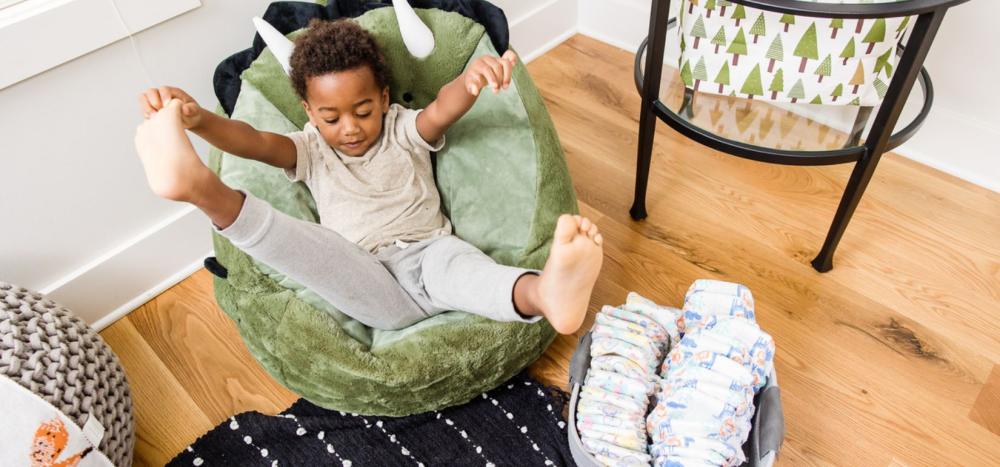This post was written by Mary Osborne, Occupational Therapist and Guest Writer and Influencer of Aeroflow Urology.
Edited by Marlee Septak, Content Writer at Aeroflow Urology.
Managing incontinence is one of the most prevalent challenges caregivers confront while helping their loved one living with dementia, and it happens quite often. In fact, half of people diagnosed with dementia will develop incontinence at some point, and in most cases, the person with dementia cannot take care of their symptoms on their own. According to a study from Pub Med, among older people with dementia, the prevalence is higher, with 22% of the community-dwelling elderly and 84% of nursing home residents reported to have urinary incontinence.
If you’re a caregiver helping someone with dementia and incontinence, you can use this article from expert caregiver and occupational therapist of 10 years, Mary Osborne, to care with confidence.
Incontinence & Dementia
Incontinence refers to unintentional urination or defecation. A person’s level of incontinence can range from a little leak to a complete lack of control over their bladder or bowels.
Before we get into discussing more about incontinence, let’s define dementia. Dementia is a general term used to describe when someone is experiencing symptoms that affect their everyday activities, including memory, communication skills, and thinking.
Alzheimer’s disease is the most common type of dementia, and the most common risk factor for developing Alzheimer’s is age.
Check Your Eligibility
2 Easy Steps
Discover the continence care essentials available through your Medicaid plan.
There are currently around 6 million people living with Alzheimer’s disease in the United States. Most of these individuals are older adults over the age of 65. There are other types of dementia, including vascular dementia, Lewy body dementia, Parkinson’s disease dementia, and frontotemporal dementia, to name a few.
Those living with dementia can experience different types of incontinence, including:
Urge incontinence: Experiencing sudden, intense urges to urinate. You may experience leakage and may not be able to get to the bathroom in time. An overactive bladder typically causes urge incontinence.
Functional incontinence: Dementia patients commonly develop functional incontinence in which their urinary and digestive systems operate correctly, but cognitive impairments and / or environmental obstacles interfere with the individual getting to the commode in time in order to urinate or have a bowel movement.
Causes of urinary incontinence in those with dementia include:
- Medical conditions / issues, such as urinary tract infections (UTIs).
- Enlarged prostate.
- Constipation
- Medication side effects.
There are many different stages of dementia, and it’s important to understand that as dementia progresses, this can lead to a loss of bowel and bladder control, causing fecal incontinence and / or urinary incontinence. According to the Alzheimer’s Association, as Alzheimer’s disease progresses, it is common for bladder and bowel incontinence to occur, particularly in the middle and late stages.
In the middle to later stages of dementia, cognitive decline becomes more apparent, meaning the individual with dementia has more difficulty performing and managing their toileting tasks. This can include:
- The person having difficulty communicating when they need to use the bathroom.
- Experiencing memory loss which can impact their ability to locate where the bathroom door and/or bathroom is located.
It’s important to remember that as dementia progresses, the more assistance that individual will require with day-to-day self-care tasks like toileting, bathing, and dressing.
My Experience as an Occupational Therapist
It can be really tough caring for a loved one who is living with dementia that is experiencing episodes of incontinence. This is challenging for everyone involved.
The person living with dementia is going through brain changes they can’t control, which impacts their ability to perform day to tasks that require cognitive skills such as:
- Reasoning
- Problem-solving.
- Making decisions.
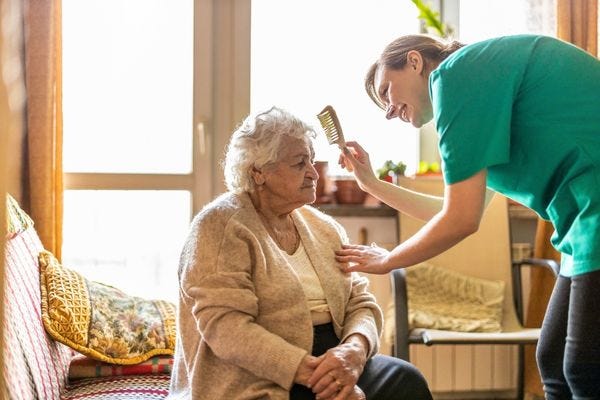

Because of this, the caregiver may also experience a difficult time understanding the type of assistance their loved one may require, while also experiencing emotions of guilt and overwhelm.
When working with individuals in the middle to later stages of dementia, I have noticed that incontinence is more prevalent. The type of care we provide will vary depending on the person who is experiencing the episodes of incontinence.
Caring for someone with dementia who is experiencing incontinence is no easy task. It requires expertise, patience, & understanding.
In my experience working as an occupational therapist with individuals living with dementia who experience incontinence, I have found it’s important to assess the physical mobility and levels of assistance that person requires to complete their toileting tasks.
It’s also important to assess the setup of the environment in order to come up with the most appropriate treatment intervention. Assessing assistance levels while ensuring the environment is maximized to suit the individual’s cognitive and physical level is a really important aspect of helping to manage incontinence episodes. Make sure to speak to your loved one’s doctor for an order for occupational therapy to assess assistance levels and the home environment. Occupational therapists may suggest things like grab bars, colored toilet seats, and/or other equipment to make the bathroom safer and more accessible.
Learning more about the different types of incontinence is key to offering the best level of care and support. Knowing the triggers, causes, and warning signs of different types of incontinence can help your loved one avoid/decrease episodes of incontinence. It’s important to take into consideration the physical and cognitive deficits of the individual living with dementia to provide the appropriate level of assistance and support.
After years of working with individuals living with dementia and their families, I cannot stress my next point enough: As caregivers, we have to be sure we are also taking care of ourselves and own needs. We must practice self-care!


This can be extremely hard to do because, as caregivers, our natural inclination is to put others first. On my personal self-care journey, I’ve learned my own self-care is just as important as others and I should always make it a priority! This can be one of the most challenging things to do as a caregiver, but it’s essential to avoid burnout.
Some ways I practice self-care include:
- Waking up one hour early to practice more mindfulness and self-awareness through journaling and meditation
- Reading a passage from my meditation book and writing down 2 words that allow me to set an intention for how I want my day to go
- Making sure we are taking care of ourselves is a form of self-love and self-respect, and it can also help ensure that you have the energy and focus you need to provide the best care possible for your loved one.
Practicing better self-care can help:
- Maintain your mental and physical health.
- Reduce stress and elevate mood.
- Ensure that you have the energy and resources you need to provide the best care possible.
5 Things to Prioritize When You’re Caring for Someone with Dementia (Self-Care Tips)
1. Take Care of Yourself Physically & Mentally. Being the primary caregiver for a loved one living with dementia can be exhausting. When this becomes too much for you to handle on your own (physically and mentally), ask for help! You can: Ask for help from family members and friends, Seek out respite care or home care services, or speak with the doctor for home health services to get an occupational therapist involved. These are all so important to help combat caregiver burnout. Don’t wait for them to ask you if you need any help because this will likely not happen. Taking care of yourself and asking for help are so important to help combat caregiver burnout.
2. Identify Things That Interest You. These can be things that you love to do that give you a sense of meaning and purpose. Focus on one of these things and make an intention to dedicate 10 minutes of your day to doing it. Let’s say you like to journal. This can be as simple as setting your alarm 10 minutes earlier each day and spending that time writing down your thoughts and feelings. Writing down your thoughts and feelings can be a great way to reduce stress and find meaning and purpose in life. You may be surprised at the mental clarity and focus this simple task can give you.
3. Prepare for Outings In Advance to Decrease Stress. If you are taking your loved one out in the community, it can give you peace of mind to plan and pack the types of incontinence supplies your loved one requires. For example, you can pack 2 small bags with supplies like: Incontinence pads, wipes, gloves, change of underwear, and other supplies you require.
4. Don’t Be Too Hard On Yourself. I know this is way easier said than done. I want you to know that feelings of guilt, anger, and exhaustion are common emotions we experience on our caregiving journey.


Recognize that we are all human and not perfect. Give yourself grace throughout this process. This is not easy for anyone involved. Make sure you are giving yourself the same grace and love you are giving to your loved one. When these feelings become too much to handle on your own, seek out the appropriate help from healthcare professionals like a therapist or grief coach to help you throughout your caregiving journey.
5. Take Care of Your Health.Taking time to make sure your own health is prioritized is key! Making time for your own doctors' appointments, getting sleep, exercising, and eating healthy are great for your mental and physical health. In order to dedicate more time and attention to your own health, you will need to set boundaries. This may look like saying no to things that don’t serve you, and taking better care of your basic needs.
Get Free Products for Your Loved One
Studies have found that caregivers of loved ones who suffer from incontinence felt less overwhelmed and reported a higher quality of life with the support of outside care, even when any type of incontinence was present.
Aeroflow Urology helps caregivers lighten their responsibilities by taking the stress out of getting incontinence supplies. They provide step-by-step support, including:
- Navigating confusing insurance coverage.
- Completing your loved one’s necessary paperwork.
- Supplying medical-grade products that are 100% covered by insurance (depending on state Medicaid guidelines).
- Shipping your loved one’s products directly to your home in discreet packaging on a monthly basis.
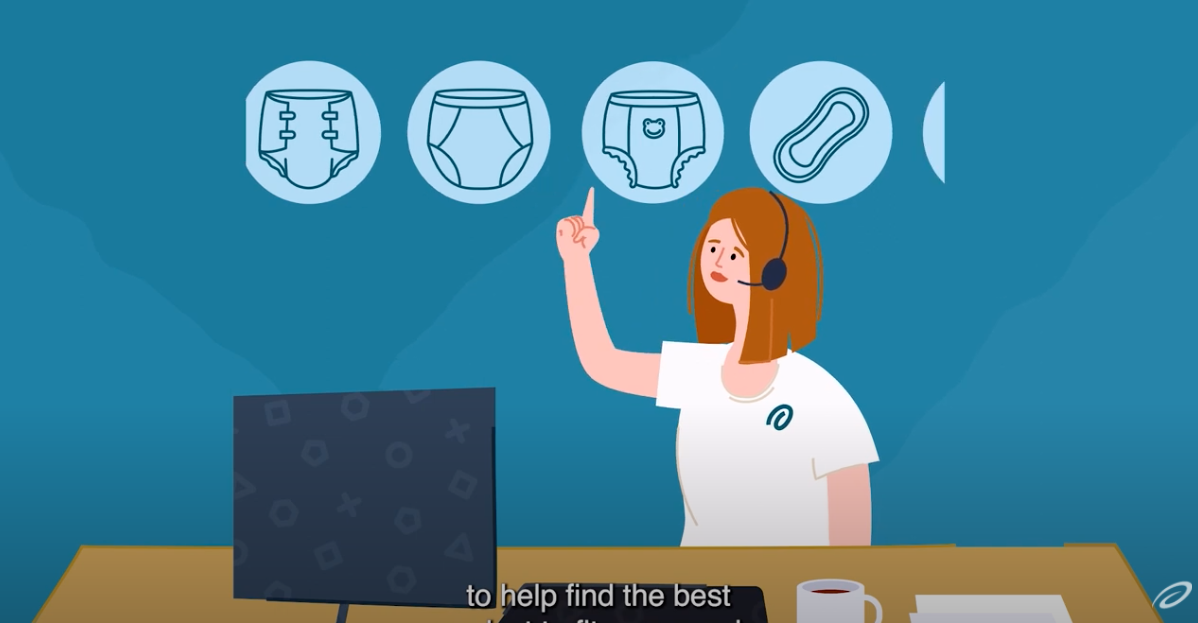
Aeroflow offers a wide assortment of high-quality products from leading brands such as TENA to fit your loved one’s needs. TENA provides medical-grade products caregivers can trust. Their discreet products help maintain quality of life and confidence at any stage of your loved one’s incontinence journey. They offer bladder control pads for lighter bladder leakage and protective underwear and briefs for moderate to heavy incontinence. Aeroflow also provides product samples and access to a Continence Care Specialist who can assist in product sizing, needs, and other support. See if your loved one qualifies today with their quick and easy 2-step Eligibility Form.
TENA Products for Dementia Patients
TENA Intimates Bladder Control Pads
These incontinence pads offer 6 absorbency levels from very light to overnight protection.
- Individually wrapped for discreet, convenient transportation.
- Adhesive strip offers a secure fixation to your underwear.
- Super absorbent and fast dry core keeps you comfortable and dry.
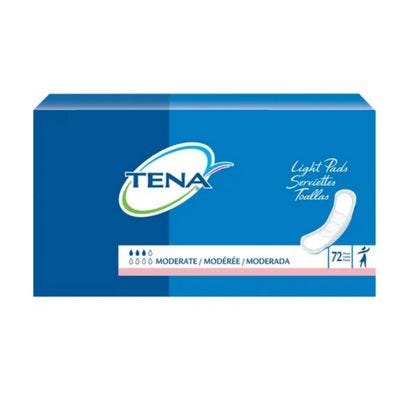

TENA ProSkin Protective Underwear for Women
These protective underwear are specifically designed for women.
- Provides moderate to heavy protection.
- Look and feel like real underwear with a clothlike fabric and neutral cream color.
- Triple protection design offers protection against bladder leaks, leaving you dry and confident.
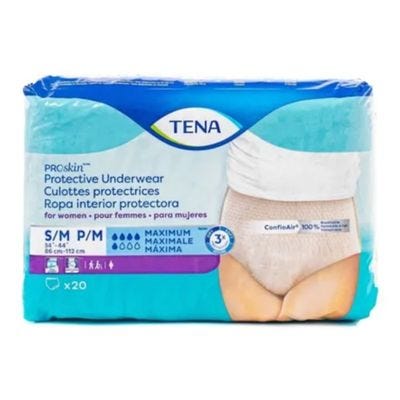

TENA Dry Comfort Protective Underwear
These protective underwear have a soft, elastic waist, providing a secure comfortable fit.
- Provides moderate to heavy protection.
- Locks away moisture and odor for effective leakage protection.
- Convenient Tear-Away Sides that makes product changes easy and fast.
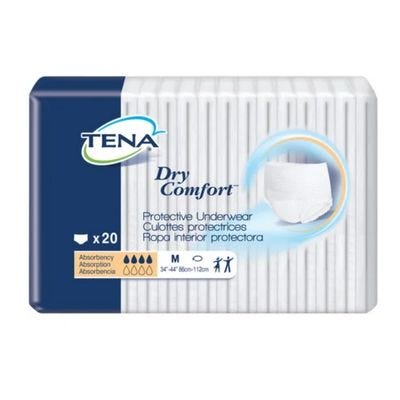

Alzheimer's Association. (2019). Incontinence. Alzheimer’s Disease and Dementia. https://www.alz.org/help-support/caregiving/daily-care/incontinence
CPI. (2015, April 2). 10 Essential Self-Care Tips for Dementia Caregivers. Crisis Prevention Institue; Crisis Prevention Institute. https://www.crisisprevention.com/Blog/10-Self-Care-Tips-for-Dementia-Caregivers
Urge Incontinence: Causes, Symptoms & Treatment. (n.d.). Cleveland Clinic. https://my.clevelandclinic.org/health/diseases/22161-urge-incontinence
Information provided on the Aeroflow Urology blog is not intended as a substitute to medical advice or care from a healthcare professional. Aeroflow recommends consulting your healthcare provider if you are experiencing medical issues relating to continence care.



